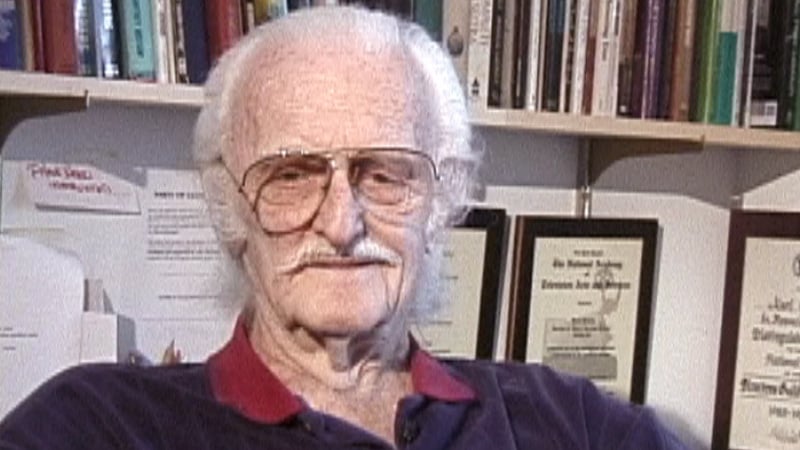Director Karl Genus discusses the beginnings of television in the 1950s, directing live and taped television broadcasts, commercials, and his service to the Directors Guild.

Initially wanting to become an actor, Karl Genus trained at the Pasadena Playhouse where he graduated in 1941. During the early 1940s he worked for various summer theatre companies before joining to serve in the Army Air Force during World War II. He continued to act in and direct plays after the war, and in 1951 founded the Totem Pole Playhouse which is still an active playhouse in Pennsylvania today. He directed stage productions for 16 years throughout the Midwest before, in 1952, he moved to New York and began working at CBS during the pioneering days of early television. Here, during what is known as the “Golden Age of Television,” Genus directed such programs as Studio One Hollywood, Playhouse 90, CBS Show of the Month, I, Don Quixote (which was adapted into the Broadway hit Man of La Mancha in 1965), The DuPont Show of the Month, The Robert Herridge Theater, Lamp Unto My Feet and Great Ghost Tales. Genus’ television movie credits include The Stone Boy (1960), Special for Women: The Trapped Housewife (1961), Playwright at Work (1961), and The Star Wagon (1966).
Genus was a pioneer in early television, being one of the first television directors to shoot video on location. While working for National Educational Television he directed an early television drama, A Sleep of Prisoners, with John Voight in 1965, one of the first full length dance presentations, Carmina Burana (Netherlands Dance Theater), in 1964 and one of the earliest music documentaries, New Orleans Jazz, in 1962.
As a leading member of the Radio Television Directors Guild, Genus was active in the merger of the RTDG with the Screen Directors Guild in 1960. After the merger, Genus served on the Eastern Directors Council and National Board until 1987, with several terms as vice president. In 1966 Genus was nominated for a Primetime Emmy for Achievement in Educational Television for the program Sibelius, A Symphony for Finland.
Genus passed away in 2003.
Select Viewing Option:
Highlights